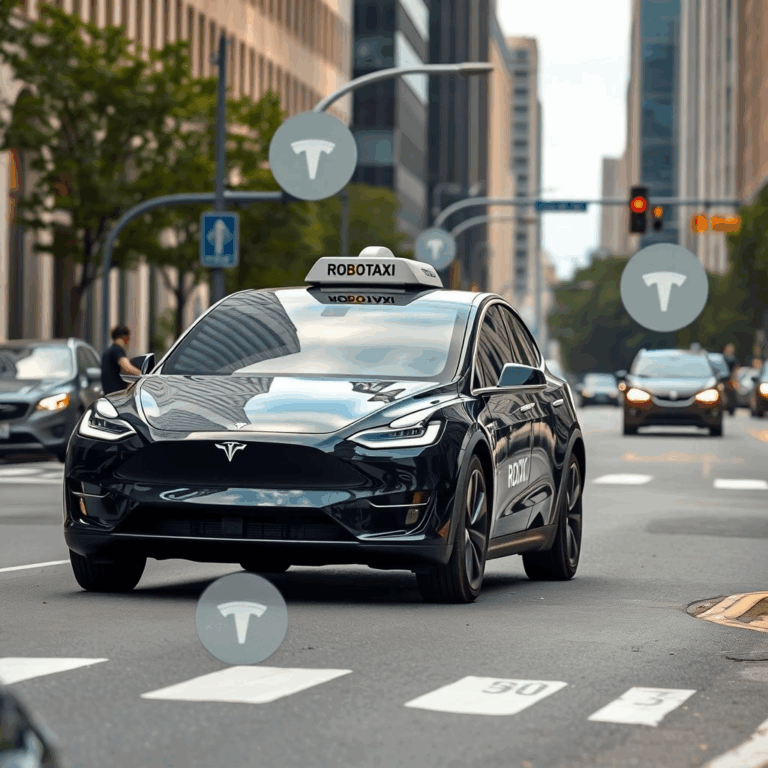Zuckerberg’s New Warning: The Coming AI Glasses Disadvantage
In a rapidly evolving world of artificial intelligence and wearable technology, Meta CEO Mark Zuckerberg has sounded a cautionary note. Speaking during a recent internal meeting, Zuckerberg warned of a growing AI glasses disadvantage that could put Meta at risk of falling behind in the international race to dominate augmented reality (AR) wearables.
The concern stems not from a lack of innovation, but from increasingly complex regulatory challenges and geopolitical factors that are threatening to stifle Meta’s momentum—especially when compared to the more centralized and state-supported strategies of countries like China.
📌 Context: Meta’s Long-Term Bet on AR Glasses
Meta has been investing billions into augmented reality, virtual reality, and AI-driven wearables, positioning itself as a leader in the next generation of computing platforms. The company’s partnership with Ray-Ban to create smart glasses with AI capabilities is part of its strategy to bring ambient computing to the masses—where devices are always present but not invasive.
Zuckerberg believes these glasses will eventually replace smartphones as the primary mode of digital interaction.
However, this bold vision now faces substantial headwinds.
⚠️ The Disadvantage: Tech Restrictions and Market Fragmentation
Zuckerberg pointed out that export restrictions, privacy regulations, and data localization laws are making it harder for Meta to scale its AI glasses globally. In contrast, countries like China are able to consolidate resources and push wearable AI products without similar constraints.
“If we don’t solve this disadvantage soon, we risk being overtaken in a space we helped pioneer,” Zuckerberg reportedly told employees.
The crux of his concern lies in data access. AI glasses need large-scale, real-time data to improve performance and user experience. With the EU, U.S., and other regions tightening data regulations, companies like Meta are forced to build isolated systems, raising costs and slowing development.
🌍 The Global Race for AI-Powered Wearables
Tech giants across the globe are moving aggressively into AI-integrated wearables:
- Apple is rumored to be working on AR glasses that sync with its growing AI ecosystem.
- Google continues to explore updates to its Glass project, possibly integrating Gemini AI into new hardware.
- Chinese companies like Xiaomi and TCL are launching AI glasses that are not only cheaper but also leverage vast domestic data resources unrestricted by Western-style privacy rules.
Meta, once a dominant force in shaping the metaverse and immersive experiences, now faces growing pressure to maintain its lead.
🤖 Data and AI: The Unseen Battlefront
While the hardware component of AR glasses often makes headlines, Zuckerberg stressed that data is the real battleground.
Without sufficient data, the AI powering the glasses won’t be able to respond to voice commands, translate languages, or provide real-time contextual information. This puts Western companies—hamstrung by regulation—at a severe AI disadvantage.
Meta’s new AI assistant, designed to work seamlessly with its Ray-Ban smart glasses, is an example of how AI + AR can create a hands-free digital experience. But for this assistant to evolve, it needs to be trained on vast, multilingual, real-world data—data that’s becoming harder to access.
🏛️ Regulatory Concerns: An Unbalanced Playing Field
One of the core messages in Zuckerberg’s remarks was that Western regulation is creating an unbalanced playing field.
- The EU’s Digital Markets Act (DMA) and AI Act require tech companies to be more transparent and limit how they can use consumer data.
- The U.S. FTC has taken a more aggressive stance on AI transparency and surveillance.
- Several countries are now introducing AI-specific export controls—especially on products deemed sensitive for national security.
In contrast, some Asian governments offer subsidies and relaxed regulations for their local tech companies, allowing them to move faster and scale globally.
📱 Product Strategy: Pushing Ahead with Ray-Ban Meta Glasses
Despite the challenges, Meta continues to double down on its wearable strategy. Its partnership with Ray-Ban has resulted in the Ray-Ban Meta Smart Glasses, already rolled out in the U.S. and parts of Europe.
These glasses come equipped with:
- A built-in AI voice assistant
- Camera-enabled photo and video capture
- Live translation (recently rolled out globally)
- Social media integration
But according to internal sources, further international expansion is on hold until Meta resolves key regulatory hurdles.
📊 Industry Reactions and Expert Views
Tech analysts have echoed Zuckerberg’s concerns.
“The real threat isn’t innovation—it’s fragmentation,” said Sarah Mullen, an analyst at Gartner. “Meta’s AI glasses are incredibly advanced, but without cross-border data flow, the user experience will always lag behind.”
Meanwhile, others argue that data protection is essential, and Meta must innovate within those constraints.
“It’s time for companies like Meta to find privacy-first innovation pathways rather than blame regulations,” said Ananya Jain, privacy advocate and tech ethics researcher.
🔮 What’s Next? The Future of AI Glasses
Meta’s roadmap reportedly includes:
- A lighter, AR-first version of Ray-Ban glasses with holographic displays.
- Next-gen AI assistants that can summarize surroundings, suggest context-based actions, and integrate with Meta AI on WhatsApp and Instagram.
- Enterprise use-cases for field workers, healthcare, and remote assistance.
However, Zuckerberg emphasized that policy progress must move in parallel with innovation. He called for a “global tech alignment” to prevent a fractured future where AI glasses work well only in certain countries or underperform in regulated markets.







